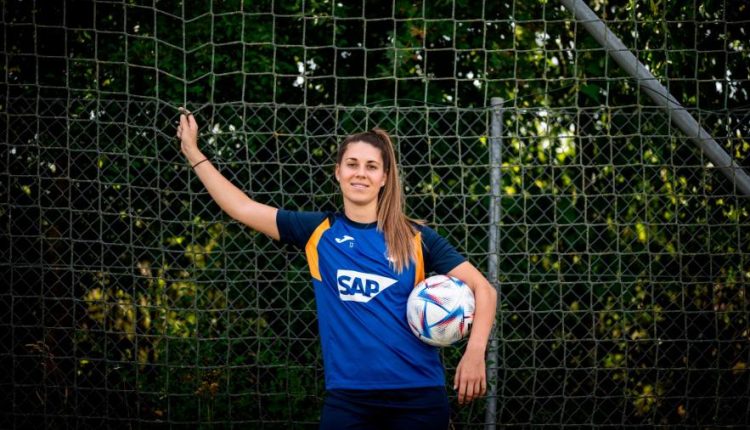Receive free Masters in Management updates
We’ll send you a myFT Daily Digest email rounding up the latest Masters in Management news every morning.
I started playing soccer at the age of four, after I went along with my brother to one of his training sessions. At 17, after a couple of years with FC Bayern Munich’s youth team, I moved to TSG 1899 Hoffenheim, where I have been playing in the German first league for the past eight years.
Some favourite moments of my career include playing for the national youth team of Germany — in 2014, we won the European Championships in England. Two years ago, Hoffenheim, which plays in the German Women’s Bundesliga, qualified for the Uefa Women’s Champions League for the first time, and we played against teams such as Barcelona and Arsenal.
As a woman, I know I’ll need something after my career in soccer — there is just not as much money as in men’s sports. It is possible to have a good life as a female soccer player for 10-15 years but, after that, you have to work with something else. That is why I decided to study alongside my soccer career. I will turn 30 in five years’ time, which is when I plan to focus full-time on a career in business.
I chose to do the Master in Management [MiM] at Mannheim Business School, partly because it was possible to do the course part-time. The university offers many opportunities for people in sports, such as scholarships, but also flexibility so that you can combine a sports career with a degree. It requires a bit of juggling for everyone.
So far, I have been lucky enough to meet people who have helped me to look for ways to reconcile both worlds. For example, the lectures would be recorded, which meant that if a lecture overlapped with a game or a training session, I could catch up on the recording at a later time.
In the end, Mannheim University, and the business school especially, is well known here in Germany. I chose my MiM with a focus on marketing and data science. The programme really taught me how to bring benefits out of data. In the future, I would like to combine the data sciences aspect with sport, because in sports there is so much data, such as that on athletes’ performance.
There were about 30 participants on the course, and we were quite diverse in terms of age. I was the youngest — I was 22 when I started and the oldest was 40. We would have one-week sessions with classes, then a break for three or four weeks, and then we would return again for a week. The whole programme lasted about two years, before we submitted our masters theses.
We had a lot of group work as part of the masters programme, which I liked. I think it’s crucial in society, or when working at a company, to be able to collaborate with people of different ages, education levels and backgrounds. It was a crucial point of learning for me, under time pressure, to prepare presentations with different classmates.
At the same time, I would have eight soccer training sessions a week, each lasting about two hours, and games at the weekend. I would start each morning with desk work, then go training, before studying. Now, in the evenings, I am also doing work for my PhD, which is at the University of Mannheim Center of Doctoral Studies in Business. My research interests are primarily in the field of sports analytics and machine learning in marketing.
I am pretty open-minded when it comes to what I want to do in the future. First of all, I would like to finish my PhD successfully, and I would like to do it during my soccer career. That is my goal. I am not yet entirely sure if I want to stay in academia or go into the private sector. I could well imagine, in the future, combining my data science and sports backgrounds to perhaps work in a football club.
Read the full article here

